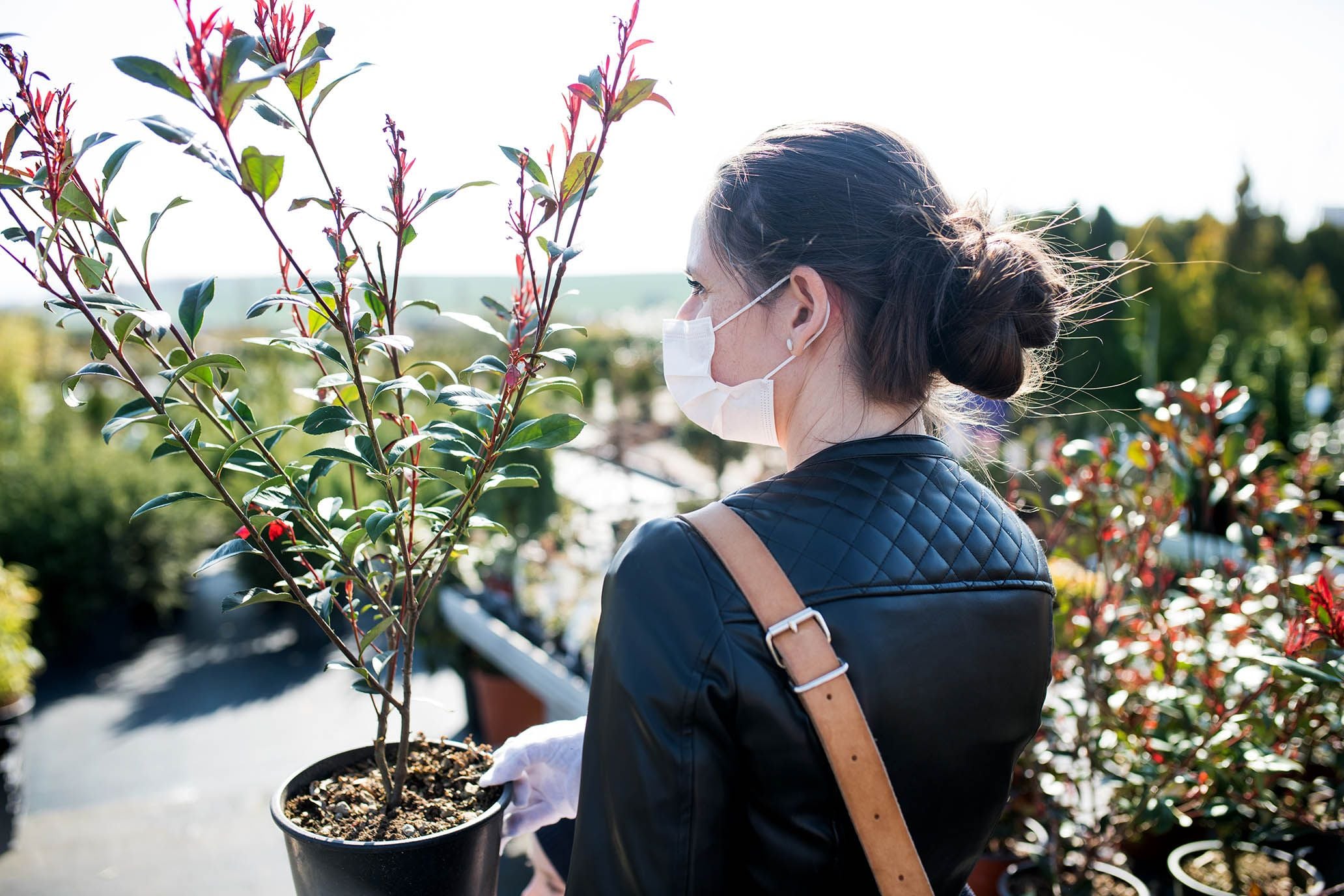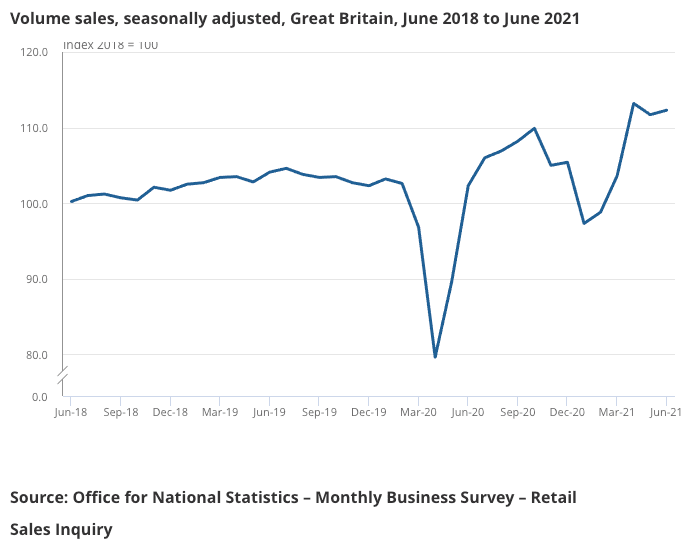Retail Sales Beat Unlikely to be Repeated say Analysts
- Written by: Gary Howes

Image © Adobe Images
UK retail sales data for June beat the market's expectations according to official data, however a combination of headwinds suggest such strong readings will unlikely be repeated in coming months.
Retail sales rose 0.5% month-on-month in June, easily beating expectations for a decline of -1.3% and besting May's reading of -1.3%.
Sales rose 9.7% on a year-on-year comparison, edging the consensus expectation for 9.6%. May's reading was 24.6%, an outsized figure given the country was in a harsh lockdown in May 2020.
The largest contribution to the monthly increase in June 2021 came from food stores where sales volumes rose by 4.2%, with the ONS reporting anecdotal evidence these increased sales may be linked with the start of the Euro 2020 football championship.
Non-food stores reported a fall of 1.7% in sales volumes in June 2021 when compared with May 2021, driven by falls in household goods stores, such as furniture stores and clothing stores.
Automotive fuel sales increased by 2.3% over the month, as people continued to increase their amount of travel says the ONS.

The retail sales release failed to make a material impact on Pound exchange rates, probably because the markets saw the transitory effect of the Euros championship flattering the data.
As ever investors are forward looking and expectations for retail sales to decline over coming months will be of greater consideration.
"Retail sales probably will fall back over the coming months," says Samuel Tombs, Chief UK Economist at Pantheon Macroeconomics. "The temporary boost to food spending from Euro 2020 will fade, while higher confidence does not appear to be translating to higher levels of economic activity, due to the recent rise in Covid-19 cases."
The UK has seen Covid-19 cases spike over recent weeks amidst a third wave of infections, although deaths and hospitalisations have been kept in check by the vaccine significant numbers of people are being told to self isolate having come into close contact with a someone who has tested positive.
These self isolating incidents are being driven by the NHS app which can automatically detect and register the presence of other apps within a specified distance, this allows the user's app to 'ping' them with a message instructing them to self isolate if close contact with someone who has subsequently tested positive for Covid has been recorded.
This encourages a sense of caution in people going about their daily lives and matters for retail settings where people interact.
"Evidence indicates that the resurgence in the virus and the pingdemic may have softened the economic recovery in July," says Paul Dales, Chief UK Economist at Capital Economics. "Evidence suggests that non-retail spending may have come off the boil too, perhaps partly due to the resurgence of the virus."
Tombs notes footfall at retail locations has trended down recently and last week was 75% of its level two years ago, down from the peak of 86% in the first week of June, according to Springboard.
In addition, credit and debit card payments settled through the CHAPS system were 4.2% below their February 2020 level in the first 15 days of July, worse than the 2.3% shortfall seen in the first 15 days of June.
"Meanwhile, the combination of a further rise in CPI inflation, a decline in the value of Universal Credit payments at the end of September and a fall in employment in Q4 after the furlough scheme has been wound down will weigh on confidence and real disposable incomes," says Tombs.
He adds that with consumers also likely to rotate back towards spending on services, it remains difficult to see how retail sales could sustainably exceed June’s level in the second half of 2021.
Capital Economics meanwhile anticipate UK GDP will return to its February 2020 peak from August to October.
"The risk is that the virus and the pandemic mean it will take GDP longer to reach than landmark," says Dales.



